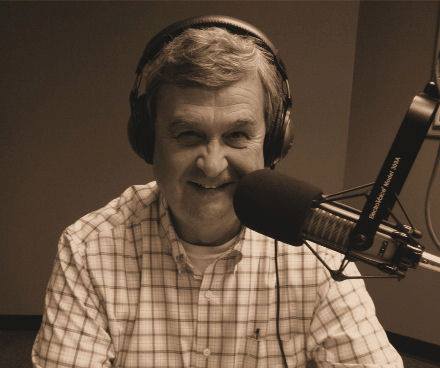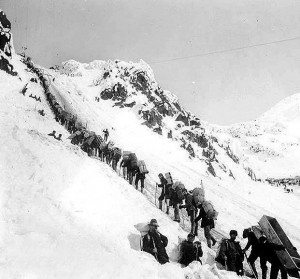So, you want to start a business?
 Starting a business is the fulfillment of the American dream for many people. I sometimes get asked for advice, and I always tell the prospective founders to take a hard look at what their day to day life will be like; even if the business is successful.
Starting a business is the fulfillment of the American dream for many people. I sometimes get asked for advice, and I always tell the prospective founders to take a hard look at what their day to day life will be like; even if the business is successful.
In this podcast I try and give some encouraging, but realistic steps that you can take as you start your new enterprise.
Driven to Business with Eddie Mayfield airs every Saturday at 11 AM on Atlanta’s Business Radio, WAFS, Biz 1190. The program is podcast on Eddiemayfield.com and on itunes. It is streamed live on biz1190.com
Simply the best business radio in Atlanta.. Driven to Business.
Rebecca Zeeuw: Using Linkedin for business
EMA Sales person, farmer, mother, wife,  and astute business woman; Rebecca and Eddie discuss her experiences and expertise at using Linkedin to build business relationships. Great show.
and astute business woman; Rebecca and Eddie discuss her experiences and expertise at using Linkedin to build business relationships. Great show.
Using Linkedin to grow your business: Rebecca Zeeuw
Rebecca Zeeuw is a busy person. She runs a successful upstate NY far m, is a mother, and sells Variable Frequency Motor drives for EMA New York.
m, is a mother, and sells Variable Frequency Motor drives for EMA New York.
She’s widely recognized as an expert resource in this field. Rebecca has used Linkedin and other social media to build relationships all over the world. Along with sharing her social media methods, Rebecca has great insights about sales, business relationships, and balancing her professional and personal life.
Don’t miss this broadcast on Saturday September 12 at 11 AM on Atlanta’s Biz 1190 AM radio. For those of you not in the Atlanta area, you can catch the live stream on biz1190.com
Driven to Business hosted by Eddie Mayfield is heard every Saturday on Atlanta’s business voice, WAFS, Biz 1190 AM. The show is streamed live on biz1190.com and podcast on eddiemayfield.com and itunes.
Simply the best business radio in Atlanta.. Driven to Business.
Unstable Times.. and opportunities.. Eddie Mayfield
 One day in 1896 two Indians, Skookum Jim Mason, and Tagish Charlie, along with a White man named George Carmack discovered gold in Rabbit creek, near the remote Yukon town of Dawson. When the word got out, locals rushed out to stake claims. Later known as the Klondike Kings, many of them became very wealthy.
One day in 1896 two Indians, Skookum Jim Mason, and Tagish Charlie, along with a White man named George Carmack discovered gold in Rabbit creek, near the remote Yukon town of Dawson. When the word got out, locals rushed out to stake claims. Later known as the Klondike Kings, many of them became very wealthy.
Almost one year later, the steamer Portland arrived in Seattle with over a ton of Yukon gold aboard. The word got out, and the Klondike Gold Rush began.
It’s difficult to imagine the chaos that followed. Over 100,000 men and women set out for the Yukon, most of them ill prepared for what they would face. Only 30,000 got there.
I’ve been to Skagway, the beginning of the White Pass trail, where most of the gold seekers passed on their way to Dawson. The Canadian Mounties required each person to carry a year’s supply of food, which made the arduous journey over the pass a backbreaking affair. Thieves and con men took full advantage of the tired inexperienced travelers, and exhaustion, cold, disease, and malnutrition claimed the lives of many.
Of the 30,000 that did get to Dawson, very few found gold.
But, there were fortunes made during the Klondike Gold Rush, and not just from gold. One notable example is a German immigrant named Fredrick Drumph, who opened a restaurant and hotel serving the gold seekers. Drumph took his earnings, moved to New York, invested in real estate, and changed his name to Trump. He’s the grandfather of billionaire Donald Trump.
A young man named Jack London came looking for gold, but instead made a fortune writing about his exploits. A lady named Martha Black ran a sawmill, and eventually became a wealthy member of the Canadian parliament. There are many other similar stories.
Great lessons are to be learned from this. When I lived in Texas friends of mine in the oil business offered valuable counsel. They said that whenever I heard about an oil field producing a lot of barrels per day; get in the barrel business.
The other great advice I got from the entrepreneur I worked for there was this: “every boom has a bust.”
So, what can we learn from the Klondike experience?
- In a boom, the first people in often make the direct money
- All booms end
- The indirect money often exceeds the direct.
Let’s use the oil fields as an example. It is possible for an individual to drill for oil, and sell what he finds, but most that try that fail. Most of the opportunities are indirect.
Generally, the oilfield segments are described as upstream, midstream, and downstream.
The upstream is where the oil is drilled and produced. The midstream is how it gets to market, whether by rail, trucks, or pipelines. The downstream is refineries, packagers, distributors, etc.
Each segment can provide great business opportunities for small businesses, in both bad times and good. In fact, unstable times are often good for small, well managed nimble companies with expertise.
During unstable times, large companies often elect to outsource a number of functions. This can present great opportunities for small skilled operations. Our company, EMA, often sees our service revenues climb during times of economic instability.
Companies may elect to use old equipment in lieu of expending capital, and if you have the ability to keep that older equipment running, then you have a built in marketplace.
Modern technology has really leveled the playing field for smaller companies to compete, even on a global scale.
Here’s a few hints to help you prosper during instability:
- Use Linkedin, blogs, and Twitter to establish yourself as an expert in your field. Always approach these as the value that you bring to the prospect or customer, not what value they bring you.
- Pursue opportunities to speak at industry gatherings.
- Do webinars and lunch & learns.
Keep in mind that you may well be living in the new normal, and if you’re going to be successful, you must learn to embrace these times.
Eddie Mayfield
Driven to Business, hosted by Eddie Mayfield is heard every Saturday at 11 on Atlanta’s business radio, Biz 1190. The show is streamed live on biz1190.com and podcast on eddiemayfield.com and itunes. Simply the best business radio in Atlanta, Driven to Business.
Unstable Times? Prosper anyhow
 One day in 1896 two Indians, Skookum Jim Mason, and Tagish Charlie, along with a White man named George Carmack discovered gold in Rabbit creek, near the remote Yukon town of Dawson. When the word got out, locals rushed out to stake claims. Later known as the Klondike Kings, many of them became very wealthy.
One day in 1896 two Indians, Skookum Jim Mason, and Tagish Charlie, along with a White man named George Carmack discovered gold in Rabbit creek, near the remote Yukon town of Dawson. When the word got out, locals rushed out to stake claims. Later known as the Klondike Kings, many of them became very wealthy.
Almost one year later, the steamer Portland arrived in Seattle with over a ton of Yukon gold aboard. The word got out, and the Klondike Gold Rush began.
It’s difficult to imagine the chaos that followed. Over 100,000 men and women set out for the Yukon, most of them ill prepared for what they would face. Only 30,000 got there.
I’ve been to Skagway, the beginning of the White Pass trail, where most of the gold seekers passed on their way to Dawson. The Canadian Mounties required each person to carry a year’s supply of food, which made the arduous journey over the pass a backbreaking affair. Thieves and con men took full advantage of the tired inexperienced travelers, and exhaustion, cold, disease, and malnutrition claimed the lives of many.
Of the 30,000 that did get to Dawson, very few found gold.
But, there were fortunes made during the Klondike Gold Rush, and not just from gold. One notable example is a German immigrant named Fredrick Drumph, who opened a restaurant and hotel serving the gold seekers. Drumph took his earnings, moved to New York, invested in real estate, and changed his name to Trump. He’s the grandfather of billionaire Donald Trump.
A young man named Jack London came looking for gold, but instead made a fortune writing about his exploits. A lady named Martha Black ran a sawmill, and eventually became a wealthy member of the Canadian parliament. There are many other similar stories.
Great lessons are to be learned from this. When I lived in Texas friends of mine in the oil business offered valuable counsel. They said that whenever I heard about an oil field producing a lot of barrels per day; get in the barrel business.
The other great advice I got from the entrepreneur I worked for there was this: “every boom has a bust.”
So, what can we learn from the Klondike experience?
- In a boom, the first people in often make the direct money
- All booms end
- The indirect money often exceeds the direct.
Let’s use the oil fields as an example. It is possible for an individual to drill for oil, and sell what he finds, but most that try that fail. Most of the opportunities are indirect.
Generally, the oilfield segments are described as upstream, midstream, and downstream.
The upstream is where the oil is drilled and produced. The midstream is how it gets to market, whether by rail, trucks, or pipelines. The downstream is refineries, packagers, distributors, etc.
Each segment can provide great business opportunities for small businesses, in both bad times and good. In fact, unstable times are often good for small, well managed nimble companies with expertise.
During unstable times, large companies often elect to outsource a number of functions. This can present great opportunities for small skilled operations. Our company, EMA, often sees our service revenues climb during times of economic instability.
Companies may elect to use old equipment in lieu of expending capital, and if you have the ability to keep that older equipment running, then you have a built in marketplace.
Modern technology has really leveled the playing field for smaller companies to compete, even on a global scale.
Here’s a few hints to help you prosper during instability:
- Use Linkedin, blogs, and Twitter to establish yourself as an expert in your field. Always approach these as the value that you bring to the prospect or customer, not what value they bring you.
- Pursue opportunities to speak at industry gatherings.
- Do webinars and lunch & learns.
Keep in mind that you may well be living in the new normal, and if you’re going to be successful, you must learn to embrace these times.
Eddie Mayfield
Driven to Business, hosted by Eddie Mayfield is heard every Saturday at 11 on Atlanta’s business radio, Biz 1190. The show is streamed live on biz1190.com and podcast on eddiemayfield.com and itunes. Simply the best business radio in Atlanta, Driven to Business.
Isaac Mendoza, Mic Productions
 Isaac Mendoza is a producer at WAFS (Biz 1190) Radio in Atlanta, and runs a media marketing and consulting firm, Mic Productions. (see micproductions.com) Isaac and his team are rapidly gaining a reputation as experts in the new media fields, including social media such as Twitter, Facebook, Periscope, Linkedin, and others.
Isaac Mendoza is a producer at WAFS (Biz 1190) Radio in Atlanta, and runs a media marketing and consulting firm, Mic Productions. (see micproductions.com) Isaac and his team are rapidly gaining a reputation as experts in the new media fields, including social media such as Twitter, Facebook, Periscope, Linkedin, and others.
Many business people are failing to grasp the realities of the “new” normal in which we live. Where people will check you out online before doing business with you, where employers look at your facebook page prior to hiring, and a time where what a google search says about your business outweighs any other marketing you may have done.
It requires engagement, and Isaac has great advice and practical tips for businesses of all sizes.
Driven to Business hosted by Eddie Mayfield is heard every Saturday morning at 11 on Atlanta’s business radio, Biz 1190 AM. The show is podcast on eddiemayfield.com and Itunes, and is streamed live on biz1190.com .
Simply the best business radio in Atlanta.. Driven to Business
Isaac Mendoza: Social Media Marketing
 Isaac Mendoza is a producer at WAFS (Biz 1190) Radio in Atlanta, and runs a media marketing and consulting firm, Mic Productions. (see micproductions.com) Isaac and his team are rapidly gaining a reputation as experts in the new media fields, including social media such as Twitter, Facebook, Periscope, Linkedin, and others.
Isaac Mendoza is a producer at WAFS (Biz 1190) Radio in Atlanta, and runs a media marketing and consulting firm, Mic Productions. (see micproductions.com) Isaac and his team are rapidly gaining a reputation as experts in the new media fields, including social media such as Twitter, Facebook, Periscope, Linkedin, and others.
Many business people are failing to grasp the realities of the “new” normal in which we live. Where people check you out online before doing business, where employers look at your facebook page prior to hiring, and where a google search result can outweigh any other marketing you’ve done.
It requires engagement, and Isaac has great advice and practical tips for businesses of all sizes.
Tune in Saturday morning, August 29th at 11, to hear Eddie and Isaac discuss this and much more.
Driven to Business hosted by Eddie Mayfield is heard every Saturday morning at 11 on Atlanta’s business radio, Biz 1190 AM. The show is podcast on eddiemayfield.com and Itunes, and is streamed live on biz1190.com .
Simply the best business radio in Atlanta.. Driven to Business
A White Guy ponders Ferguson
Back in 1995, when the OJ Simpson verdict was announced, I was at an industrial plant working on some equipment. They put the radio newscast on the plant speaker system, and all of us stopped to listen. The Simpson trial had dominated the news for some time, and it was hard to find anyone that didn’t have an opinion.
The reaction to the jury’s verdict exonerating Simpson for the murders was sharply divided along racial lines. What I saw, was that every black person there thought the jury made the correct decision, while every white thought he got away with murder.
Most of us work and interact regularly with people of other races, and specifically, blacks and whites. There is little evidence of racial animosity, and in fact, the interactions are almost always friendly and positive. In short, most Americans get along fairly well. And when there are conflicts, they’re rarely about race.
All of us know someone, or at least know about someone, who does not like people of other races. And, that holds true within all racial groups. But, overall, it’s not representative of American culture..
Many of us found black reaction to the Simpson verdict both surprising and disturbing. The argument given most often, was that policeman Mark Furman used a racial epithet at some point during the investigation, and that evidently sealed the deal with many blacks. They actually thought that the police planted the evidence to convict OJ Simpson. The real irony, is that prior to the trial, OJ Simpson was very popular with whites, possibly more so than with blacks.
Following the death of Michael Brown in Ferguson, Missouri, the same sharply divided opinions were prevalent. When the story first hit the news, and it appeared that a policeman unjustifiably shot an unarmed black teenager, most whites, including me, thought an injustice had occurred.
But then the details began to emerge. Brown was not an innocent “gentle giant;” the video evidence shows him to be a bullying thug.
The grand jury details began to leak out, and the evidence supported the officers’ side of the story. Brown attacked Officer Wilson in his car, was wounded, ran away from the car, the policeman pursued, and then Brown charged the officer. That’s when Wilson fired the fatal shot. There were some eye witness accounts that told a different story, but the majority of them, all black, confirmed Officer Wilson’s version of the account.
The recent raising of a monument to memorialize Brown is beyond idiotic. I’m sure he had friends that will miss him; but there are undoubtedly those who will not. For instance, those he bullied and threatened in that community, as evidenced by more recent cell phone footage. Most of the people he bullied have black skin. He’s no one to memorialize.
There have been some that argued the policeman shouldn’t have pursued, but that would have been a dereliction of duty. The officer didn’t know what he was dealing with. A large threatening person, who had likely robbed a store, attacked him. Wilson could not allow him to remain at large. Policemen don’t get to sit in a car and wait for the cops to show up like the rest of us.
The death is certainly tragic, but the fault lies with Michael Brown, not the policeman. There doesn’t appear to be a clear racial component to this. The community the policeman was trying to protect is a primarily black community. Young, misguided thugs like Brown are a threat to that community, and the police are there to protect it.
The primary danger to young black men in black urban communities is not white cops, it’s other young black men. The argument has been made that black crime had nothing to do with the Ferguson incident, but that’s a specious argument. It had everything to do with it. Brown was stopped because he’d just robbed a store and threatened the store owner, and the officer was given his description. He wasn’t stopped because he was black. (Most people in that community are black; that’s an absurd charge)
Some have noted, and been attacked for it, that the primary indicator of how much violent crime an area will have is its racial makeup. Blacker areas, have higher violent crime rates. I realize that data of this sort can be applied unfairly. Most black people are not criminals, and do not harbor hatred against whites. But, if you’re going jump to a broad conclusion of white, and specifically white police, injustice based on Michael Brown; you must deal with these facts or forgo any semblance of intellectual honesty. Policemen, of all races, rush into black communities because they are called by the blacks living there to come and protect them. And, they’re called there often.
Comparing Brown to other young blacks killed by racially motivated whites in the past is beyond inane. We’re all aware of the horrible abuses of power by white police and others in the past, where young black men were targeted, and killed simply for being black. Whites find those actions as abhorrent as any black person. It’s a disservice to their memory and sacrifice to make such a comparison. If Brown hadn’t attacked Officer Wilson, he’d still be alive. That’s in sharp contrast to actual victims of racial violence.
The nation’s consciousness was forever changed by Martin Luther King and other civil rights activists, and rightly so. Any of us can understand the emotions that might trigger a default reaction among blacks to a white policeman shooting a black youth. However, at some point, reason has to overrule emotion.
Watching the mob of so called protestors in Ferguson, one would think they were calling for Officer Wilson to be lynched. Is that really what black Americans want?
The policeman did not commit a crime, Brown did. That’s the finding of the Grand Jury, and verified by the federal Justice Department. Could the policeman have reacted differently? Perhaps, but that’s always easy to say after the fact. In the roughly 90 seconds of intense stress where decisions had to be made in real time- not so easy.
I’ve heard black people tell about being “profiled” when they were innocently walking around in a store. I don’t doubt that happens, and all of us should make an effort not to judge others by their appearance. But, that’s not the whole story.
Blacks are roughly 13% of the population, but commit the majority of violent crimes. Isn’t it at least possible that’s the reason for the attention paid in a store? Back when the FBI was attempting to prosecute the KKK they didn’t go to a black college to find their suspects. They looked at southern whites. This was despite the fact that the vast majority of southern whites had no connection whatsoever to the KKK.
This analogy is almost perfect, because many whites that did not favor the KKK at all, were upset with what they felt were unjust and over the top actions by the Feds in these cases. Hence, they, in effect, let their emotions marry them to the horrors of the KKK, even though they did not support them in an intellectual sense at all.
Profiling has become such a dirty word, that its common sense usefulness has been ignored. If a policeman gets word that a suspect in a white Ford just robbed a convenience store; they do not start chasing blue Chevrolets. If they hear that the suspect is a red headed pale skinned white youth, they don’t stop and question young blacks. That’s real life, and I’m glad it is. It’s how you catch bad guys and protect society.
Far too many black youth are in prison; it’s a national shame. From what I read, in most states, the majority prison population is black. But before reacting emotionally, why is that so? Police injustice?
The argument is sometimes made that black youths get longer sentences than whites. I’m hardly a legal expert, but that may have more to do with the quality of lawyers they get in the way of public defenders. One of the lessons from the OJ Simpson trial may be that a “dream team” of expensive lawyers can work wonders for a defendant regardless of race. I strongly suspect that rich black kids get no longer sentences than rich white kids.
But why are black young men charged with felonies so often in the first place? Is it because, they commit them? The evidence says- “yes.” So, what’s the right course of action? Don’t arrest people that commit felonies, even against other poor blacks? That hardly seems right.
I think the only thing Eric Holder has ever said I agree with, is when he stated that it’s nearly impossible to have an honest discussion about race in America. The Ferguson event made that clear to many people.
The New York Times ran a piece that tried to explain why white people don’t “get” Ferguson. OK, fair enough. Explain it to us, But then explain how it’s somehow understandable to demand the head of a young officer that the evidence clearly shows was trying to do his job and contain an unruly and dangerous thug?
Explain how it’s fine to never place blame on the young blacks committing crimes or on the communities and families that breed them? Why should the American culture, which is the best place on earth to be a minority of any type, be subjected to criminal activity from a minority, and then blamed for trying to stop it? Blacks are not the only minority in America. Why is it that Asians hardly ever commit violent crimes? (and are just as rarely arrested)
The black people that I work with, go to church with, see in the grocery store, and vote next to, have no more in common with the inner city black culture than I do. They care about their children, raise them to be hard workers, see that they pay attention to their education, and teach moral values. Yet for some reason, they’re prodded and cajoled into believing that somehow, that’s their community, and they can’t speak against it unless willing to face ridicule from other blacks. I don’t “get” that.
Whites, on the contrary, feel no obligation to consider white criminals as their brothers to defend.
One of the adages you often hear in politics is to “follow the money.” There is a civil rights industry in the United States that produces a lot of money. Civil Rights figures like Jesse Jackson and Al Sharpton are wealthy men because of it. And they’re not the only ones, there’s an entire segment of businesses and non profits that exist to serve the civil rights industry.
As Rahm Emanuel is famous for saying, “never waste a crisis.” That’s why the civil rights industry swings into full gear over incidents like Ferguson, and the facts don’t really matter very much. We saw the same thing with the Duke Lacrosse team. The headline was “white kids rape black girl,” and that’s all that was needed to mobilize a full civil rights industry ramp-up. A great deal of money was generated, and the fact that the incident never happened was immaterial. Except, of course, to the real victims, the white lacrosse players.
But facts DO matter, or at least they should to a civil society.
The problem in inner city urban areas is an age old problem. It’s what happens when God and morals are taken out of a society. The first result of that is the deterioration of the basic building block of human society- the family. And before anyone tries to argue that Brown came from a good family, just play the tape of his stepfather screaming “burn this b____ down” after the announcement of the Grand Jury findings. Good families don’t raise bullying thugs. Sorry, they just don’t.
Dark skin doesn’t make you violent. In parts of Europe, you have the exact same situation, only it’s whites that are involved in the broken culture that breeds fatherless young violent thugs. The problem is obviously deeper than skin color, and painting the problem in skin colors explains nothing,
Not to sound like a preacher, but Benjamin Watson with the New Orleans Saints had it right. The ultimate answer is the gospel of Jesus Christ. I found myself looking at the looters in Ferguson, and feeling disgusted. I feel the same way when I see the Black Lives Matter crowd, born out of the urban myth of police abuse in Ferguson, Missouri. Then I think about Jesus, when he looked at crowds and was filled with compassion because they were like lost sheep without a shepherd.
My wife and I were recently driving past a disheveled, scowling black youth with his pants below his rear, flashing what seemed to be gang signs at passing cars. I made a remark about how stupid he was, and my wife reminded me that this young man probably has no adult male in his life to teach him any better or to lead by example. My wife was right- which means, I was wrong.
But, loving people as Christ did doesn’t mean not telling the truth. That being, what happened in Ferguson is not indicative of widespread abuse of black people by whites. Furthermore, looting a liquor store is not a protest, or an appropriate response to anything. And, keeping a lie alive by forming a movement based on it does nothing positive. Those actions are symbolic of a sick heart writ large as a sick culture.
And that’s what the gospel changes. Nothing else will. It truly is our only hope.
Eddie Mayfield
Motivated Employees: How and Why
 You don’t build a business.. you build people and they build a business Zig Ziglar
You don’t build a business.. you build people and they build a business Zig Ziglar
Everyone has the sordid experience of walking into a business where the employees obviously don’t want to be there. You remember; you walk in, employees are either staring into space, or talking on the phone, or talking to each other, and refusing to acknowledge your presence much less try to serve you. The term “motivated” doesn’t come to mind.
One dictionary definition of motivated is the “state of being eager to work.”
You’ve probably had the opposite experience as well. Where you were energetically greeted with a smile, and it was obvious they were happy you were there.
What kind of business or organization do you want to lead? Because, in truth, it is up to you.
The Harvard Business Review published “Employee Motivation: A Powerful new Model” in their July-August edition of 2008. They attempted, in a well researched article, to “peek under the hood” of the human brain, and answer some questions about what actually motivates us.
The researchers listed four primary drivers of employee behavior:
- The Drive to Acquire: (material goods, or intangibles such as social standing)
- The Drive to Bond: (form meaningful connections with others)
- The Drive to Comprehend: (satisfy innate curiosity about the world around us, and make sense of it)
- Drive to Defend: (protect against external threats and promote justice)
We are all driven to acquire goods and or social standings that bolster our sense of well being. We experience delight when this happens, and disappointment when it doesn’t. Our assessment of this is relative; we always compare what we have with what others have.
The Drive to Bond applies not only to bonding with other people, but to organizations. People enjoy feeling that they are part of a larger good. This drive, when met, leads to positive emotions such as love and caring, and a boost in motivation when employees feel proud of belonging to the organization. This is also why very negative feelings erupt when the institution betrays them.
The Drive to Comprehend means that we want to make sense of the world around us. We become frustrated when it does not, and invigorated when it does, especially by doing by meaningful work. Employees are demoralized by monotonous jobs and environments that appear senseless.
The Drive to Defend is because we naturally defend ourselves, our property, and our accomplishments. We defend our family and friends, and our ideas and beliefs. At work, this often manifests itself as feelings of security and confidence. This also explains why people resist change.
One thing that became very clear in their research, is that you can’t increase satisfying one drive at the expense of another. It doesn’t work. For instance, you can’t just pay more (drive to acquire) for boring meaningless work and expect long term motivated employees. You have to deal with all of the drives.
“Why people work anyhow”, has been studied extensively. In 1960 MIT professor, Douglas McGregor wrote that most managers had the following assumptions:
- Humans dislike work and will avoid it if possible
- Because of this, they must be coerced, controlled, directed, or threatened to force them to work.
- The average person prefers to be directed, wishes to avoid responsibility, has little ambition, and values security above all else.
McGregor challenged those assumptions, and proposed these instead:
- Work is as natural as play or rest to human beings
- People will, on their own, exercise self direction and self control in service of objectives to which they are committed.
- The average person learns, under proper conditions, to not only accept but seek additional responsibility.
- A high degree of imagination, ingenuity, and creativity is widely distributed in the population.
- Modern Industrial life under-utilizes the intellectual abilities of the average person.
McGregor’s concepts became the foundation for modern motivational techniques, and they remain so today.
Here’s some practical hints for motivating employees:
Give employees as much autonomy as possible. No one likes being micro managed.
Engender a sense of ownership to employees. When people begin referring to “my” company, and taking pride in it, you’ve come a long way.
Let everyone see the big picture, and in fact, as much as possible, let people see jobs from beginning to end. The term is “task identity.” When someone cannot see the end result of their work, they are much less motivated to work.
Involve staff in making decisions that affect them. And avoid burdensome and unnecessary rules and regulations that stifle and annoy employees.
Communicate, communicate, communicate. Be sure your folks know what is going on, and how their contributions contribute to the overall mission.
And perhaps most importantly.. care. Employees do not like being used, they want to know you care for them as people, not cogs in your wheel.
As Einstein famously said, “I want to know God’s thoughts, the rest are details.” You may find this surprising, but I feel the same way about studying human motivation, marketing, and leadership. I think these studies are, in effect, trying to unravel God’s thoughts on our design.
I find myself surprised, and then, surprised that I’m surprised, to discover that good leadership, motivational, and business practices are the same concepts presented to us in the Bible and traditionally held in the Christian culture.
To list a few:
- People have inherent value, so much so that God gave His son to pay for our shortcomings.
- Since people have value, we should value them. And not for what they can do for us, but simply because of God.
- People have another drive, not listed in the Harvard Business Review, although it is alluded to. It’s knowing that we answer to a higher power, and are responsible to Him.
- Understanding these concepts, and living them, gives life meaning and purpose, far beyond business dealings.
Eddie Mayfield
Driven to Business, hosted by Eddie Mayfield airs every Saturday morning at 11 on Atlanta’s Biz 1190. The program is streamed live on biz1190.com and and podcast on eddiemayfield.com and itunes. Simply the best business radio in Atlanta.. Driven to Business
Motivating Employees: How and Why
 You don’t build a business.. you build people and they build a business Zig Ziglar
You don’t build a business.. you build people and they build a business Zig Ziglar
Everyone has the sordid experience of walking into a business where the employees obviously don’t want to be there. You remember; you walk in, employees are either staring into space, or talking on the phone, or talking to each other, and refusing to acknowledge your presence much less try to serve you. The term “motivated” doesn’t come to mind.
One dictionary definition of motivated is the “state of being eager to work.”
You’ve probably had the opposite experience as well. Where you were energetically greeted with a smile, and it was obvious they were happy you were there.
What kind of business or organization do you want to lead? Because, in truth, it is up to you.
The Harvard Business Review published “Employee Motivation: A Powerful new Model” in their July-August edition of 2008. They attempted, in a well researched article, to “peek under the hood” of the human brain, and answer some questions about what actually motivates us.
The researchers listed four primary drivers of employee behavior:
- The Drive to Acquire: (material goods, or intangibles such as social standing)
- The Drive to Bond: (form meaningful connections with others)
- The Drive to Comprehend: (satisfy innate curiosity about the world around us, and make sense of it)
- Drive to Defend: (protect against external threats and promote justice)
We are all driven to acquire goods and or social standings that bolster our sense of well being. We experience delight when this happens, and disappointment when it doesn’t. Our assessment of this is relative; we always compare what we have with what others have.
The Drive to Bond applies not only to bonding with other people, but to organizations. People enjoy feeling that they are part of a larger good. This drive, when met, leads to positive emotions such as love and caring, and a boost in motivation when employees feel proud of belonging to the organization. This is also why very negative feelings erupt when the institution betrays them.
The Drive to Comprehend means that we want to make sense of the world around us. We become frustrated when it does not, and invigorated when it does, especially by doing by meaningful work. Employees are demoralized by monotonous jobs and environments that appear senseless.
The Drive to Defend is because we naturally defend ourselves, our property, and our accomplishments. We defend our family and friends, and our ideas and beliefs. At work, this often manifests itself as feelings of security and confidence. This also explains why people resist change.
One thing that became very clear in their research, is that you can’t increase satisfying one drive at the expense of another. It doesn’t work. For instance, you can’t just pay more (drive to acquire) for boring meaningless work and expect long term motivated employees. You have to deal with all of the drives.
“Why people work anyhow”, has been studied extensively. In 1960 MIT professor, Douglas McGregor wrote that most managers had the following assumptions:
- Humans dislike work and will avoid it if possible
- Because of this, they must be coerced, controlled, directed, or threatened to force them to work.
- The average person prefers to be directed, wishes to avoid responsibility, has little ambition, and values security above all else.
McGregor challenged those assumptions, and proposed these instead:
- Work is as natural as play or rest to human beings
- People will, on their own, exercise self direction and self control in service of objectives to which they are committed.
- The average person learns, under proper conditions, to not only accept but seek additional responsibility.
- A high degree of imagination, ingenuity, and creativity is widely distributed in the population.
- Modern Industrial life under-utilizes the intellectual abilities of the average person.
McGregor’s concepts became the foundation for modern motivational techniques, and they remain so today.
Here’s some practical hints for motivating employees:
Give employees as much autonomy as possible. No one likes being micro managed.
Engender a sense of ownership to employees. When people begin referring to “my” company, and taking pride in it, you’ve come a long way.
Let everyone see the big picture, and in fact, as much as possible, let people see jobs from beginning to end. The term is “task identity.” When someone cannot see the end result of their work, they are much less motivated to work.
Involve staff in making decisions that affect them. And avoid burdensome and unnecessary rules and regulations that stifle and annoy employees.
Communicate, communicate, communicate. Be sure your folks know what is going on, and how their contributions contribute to the overall mission.
And perhaps most importantly.. care. Employees do not like being used, they want to know you care for them as people, not cogs in your wheel.
As Einstein famously said, “I want to know God’s thoughts, the rest are details.” You may find this surprising, but I feel the same way about studying human motivation, marketing, and leadership. I think these studies are, in effect, trying to unravel God’s thoughts on our design.
I find myself surprised, and then, surprised that I’m surprised, to discover that good leadership, motivational, and business practices are the same concepts presented to us in the Bible and traditionally held in the Christian culture.
To list a few:
- People have inherent value, so much so that God gave His son to pay for our shortcomings.
- Since people have value, we should value them. And not for what they can do for us, but simply because of God.
- People have another drive, not listed in the Harvard Business Review, although it is alluded to. It’s knowing that we answer to a higher power, and are responsible to Him.
- Understanding these concepts, and living them, gives life meaning and purpose, far beyond business dealings.
Eddie Mayfield
Driven to Business, hosted by Eddie Mayfield airs every Saturday morning at 11 on Atlanta’s Biz 1190. The program is streamed live on biz1190.com and and podcast on eddiemayfield.com and itunes. Simply the best business radio in Atlanta.. Driven to Business




